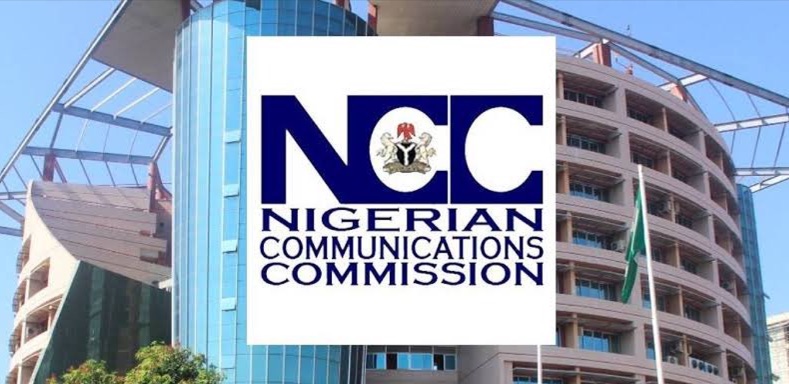By Chinenye Anuforo
The Nigerian Communications Commission (NCC) on Wednesday formally launched its new guidelines on corporate governancefor the telecommunications industry, a move the Executive Vice Chairman, Aminu Maida, described as crucial for the sector’s long-term sustainability and national development.
The guidelines, which build on previous regulatory efforts, aim to enhance transparency, accountability, and resilience within the country’s rapidly expanding telecom landscape.
During the launch, Maida emphasized that the initiative goes beyond mere compliance. “Today’s launch is not just about compliance. It is about sustainability of networks and businesses, of investments and innovation, of customer trust and national development,” he stated.
He highlighted that robust corporate governance is essential for leaders to make sound capital allocation decisions, manage risks effectively, safeguard data, attract long-term financing, and deliver reliable services, particularly in an era marked by cyber threats, energy constraints, and rising stakeholder expectations.
Tracing the evolution of corporate governance in the sector, Maida recalled the initial voluntary code introduced in 2014. This transitioned to a mandatory regime in 2016, leading to the Nigerian Corporate Governance Code 2018. The latest 2025 guidelines are the result of extensive public consultations in 2023 and 2024, designed to integrate global best practices with Nigeria’s unique operating environment. “Because we all know that there is a world and there is Nigeria. We always have our peculiarities in Nigeria. This is indeed very timely,” Maida noted.
The EVC presented evidence from a comprehensive analysis conducted across licensees, which correlated strong corporate governance with superior financial performance, service quality, and regulatory compliance. “The results were clear and compelling. Firmly strong corporate governance consistently demonstrated superior performance across all of these dimensions,” he affirmed.
He added, “The winners in the market today, whether we like it or not, are there because of strong corporate governance. Good corporate governance is not merely a regulatory requirement. It is a strategic imperative for business success and long-term sustainability”, he asserted.
Key provisions of the 2025 guidelines include: Mandating balanced composition, separation of Chairman and CEO roles, and requiring sector-specific expertise in ICT and cybersecurity on boards.
The new guidelines introduces robust controls on related party transactions, mid-year and annual board-certified compliance reports, and a designated regulatory officer role for timely and accurate filings.
It also, emphasized systematic identification and mitigation of material risks, including operational resilience, supported by empowered internal audit functions.
Continuing, the new guildlines requires ESG (Environmental, Social, and Governance) and CSR (Corporate Social Responsibility) reporting, with a focus on customer welfare, energy efficiency (including renewables at network sites), supply chain integrity, and community impacts. It also escalates sanctions for persistent material non-compliance to protect consumers and maintain market confidence. These provisions will be implemented in phases, starting with priority license classes.
Maida pointed out several reasons why strong governance is central to sustainability, including enhanced network reliability and customer trust, reduced cost of capital and increased investment confidence, improved regulatory and social license, bolstered operational resilience and climate readiness, and disciplined innovation.
He urged the licensees and industry partners to embrace the new guidelines. “Do not view these guidelines as a burden. See them as a toolkit for creating sustainable value for your investors who benefit from stronger returns and lower risk, for your customers who benefit from better quality, security, and transparency. And internally for your people who thrive in ethical, high-performing institutions”, he. Stated.
In his welcome address, Gwa Mohammed, Commission Secretary for the NCC, highlighted the telecom sector’s foundational role in the nation’s digital transformation. “It is commonly said that telecoms is the infrastructure of infrastructures because it has become the backbone upon which our nation’s digital transformation is based,” Mohammed remarked.
He stressed the inherent responsibility that accompanies such influence, stating, “We need to uphold standards that guarantee transparency, accountability, and sustainability of our industry.”
Mohammed further elaborated that the NCC’s mandate extends beyond mere regulation to foster an enabling environment that balances commercial viability with public interest, asserting that corporate governance is central to this mission. He noted the NCC’s commitment to a thorough engagement process, indicating that the final document reflects copious comments and contributions from the industry, which attests to a robust engagement.
He urged licensees to not only adhere to the provisions but also to internalize the principles they embody. Because governance is not about box ticking. It is about culture.
Professor Fabian Ajogwu, Senior Advocate of Nigeria and Professor of Corporate Governance at Lagos Business School, commended the NCC for its consultative approach. “NCC is one of those A-class regulators. For the simple reason that it is consultative in nature, it has always sought the input of its regulators in all the regulations they make,” Ajogwu affirmed, drawing on his experience chairing the committee for the pioneer Code of Corporate Governance in 2014.
He highlighted the guidelines’ alignment with the NCC Act, the Companies and Allied Matters Act 2020, and the National Code of Corporate Governance 2018. Ajogwu specifically praised the NCC’s laudable oversight and proactive initiative in incorporating Guidelines on Digital Governance, which aim to prepare boards of telcos for digital governance, demonstrating the proactive approach to responsible leadership.
Titus Osawe, Coordinating Director of the Financial Reporting Council of Nigeria (FRC), in his speech said, “Today marks another significant milestone in our collective and determined efforts to deepen good corporate governance practices and foster a business environment that is both robust and resilient.
He reiterated that “Good corporate governance is seen as the backbone of any thriving industry, serving as the foundation upon which trust, credibility, and long-term sustainability are built.” Osawe affirmed the FRC’s statutory role in regulating financial reporting, corporate governance, and sustainability reporting in Nigeria, noting that the new NCC guidelines complement the FRC’s efforts to harmonize sectoral codes.


